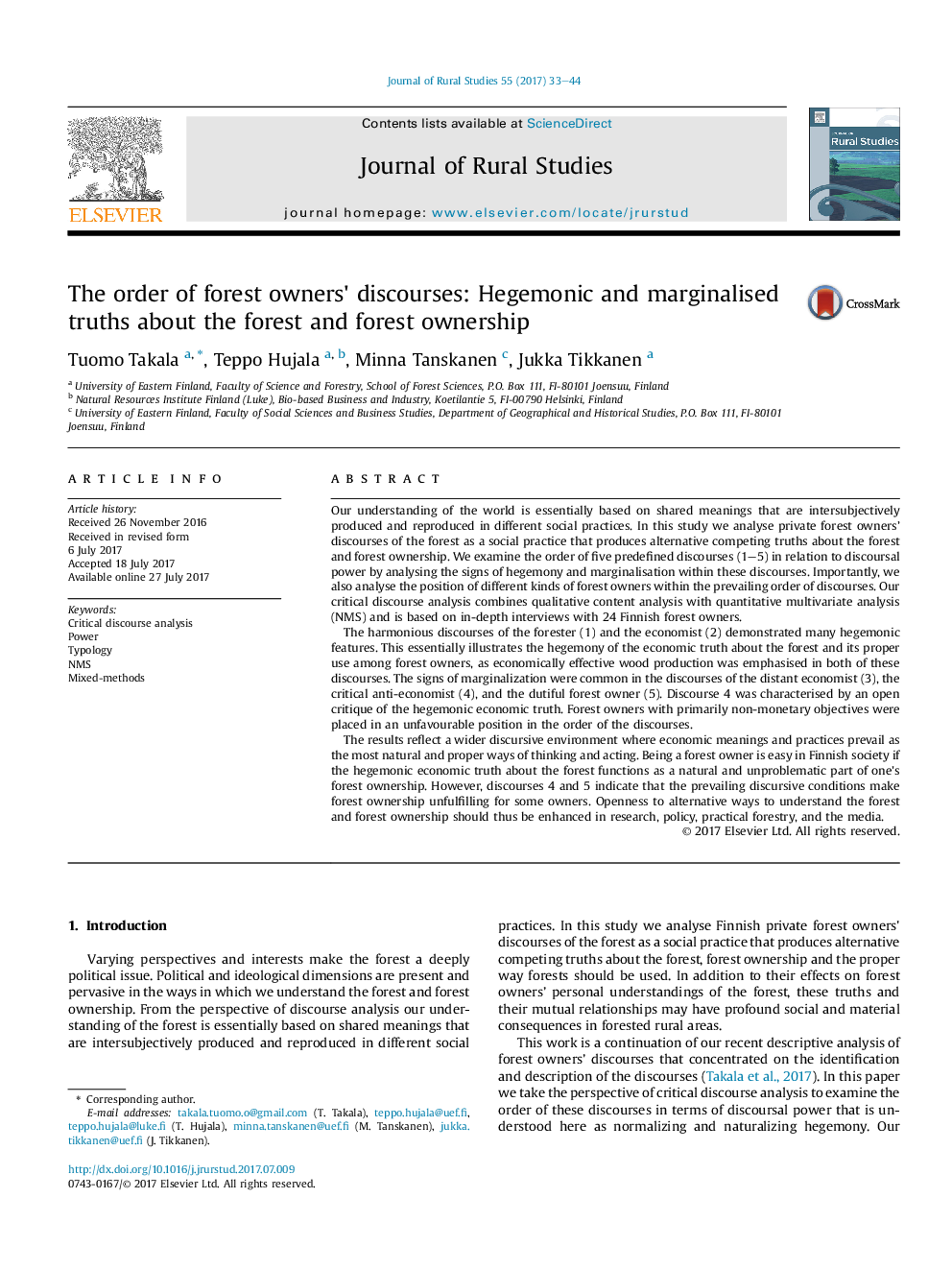| کد مقاله | کد نشریه | سال انتشار | مقاله انگلیسی | نسخه تمام متن |
|---|---|---|---|---|
| 6459930 | 1421776 | 2017 | 12 صفحه PDF | دانلود رایگان |
- Power relations between the forest owners' discourses of forest were examined.
- Two economically oriented discourses were interpreted as hegemonic.
- Two subordinate discourses emphasized non-monetary meanings of forest.
- Some forest owners are marginalized by the hegemonic economic ideology.
- The society should be more open to alternative ways to understand the forest.
Our understanding of the world is essentially based on shared meanings that are intersubjectively produced and reproduced in different social practices. In this study we analyse private forest owners' discourses of the forest as a social practice that produces alternative competing truths about the forest and forest ownership. We examine the order of five predefined discourses (1-5) in relation to discoursal power by analysing the signs of hegemony and marginalisation within these discourses. Importantly, we also analyse the position of different kinds of forest owners within the prevailing order of discourses. Our critical discourse analysis combines qualitative content analysis with quantitative multivariate analysis (NMS) and is based on in-depth interviews with 24 Finnish forest owners.The harmonious discourses of the forester (1) and the economist (2) demonstrated many hegemonic features. This essentially illustrates the hegemony of the economic truth about the forest and its proper use among forest owners, as economically effective wood production was emphasised in both of these discourses. The signs of marginalization were common in the discourses of the distant economist (3), the critical anti-economist (4), and the dutiful forest owner (5). Discourse 4 was characterised by an open critique of the hegemonic economic truth. Forest owners with primarily non-monetary objectives were placed in an unfavourable position in the order of the discourses.The results reflect a wider discursive environment where economic meanings and practices prevail as the most natural and proper ways of thinking and acting. Being a forest owner is easy in Finnish society if the hegemonic economic truth about the forest functions as a natural and unproblematic part of one's forest ownership. However, discourses 4 and 5 indicate that the prevailing discursive conditions make forest ownership unfulfilling for some owners. Openness to alternative ways to understand the forest and forest ownership should thus be enhanced in research, policy, practical forestry, and the media.
Journal: Journal of Rural Studies - Volume 55, October 2017, Pages 33-44
